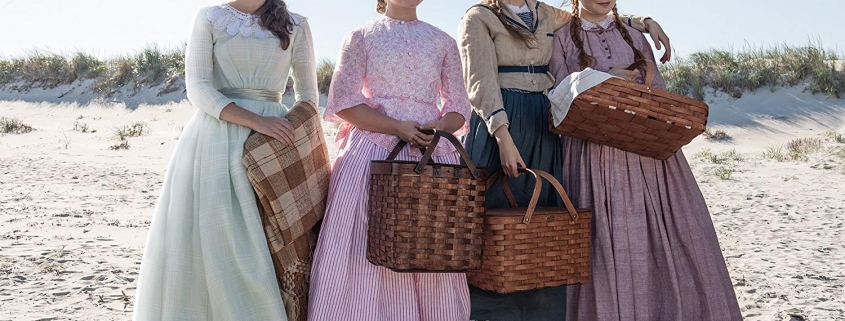REVIEW: Gerwig’s modern “Little Women” explores childhood nostalgia

I’ve often heard “Little Women” is a book for those without siblings. As an only child who devoured the story alone in my room, the clamor of the March girls surging up to fill the silence around me, I immediately felt seen. It is not, perhaps, a theory that holds up under intense scrutiny — I’m sure there are plenty of people with siblings who adored the book and plenty more only children who recoiled from its depiction of sisterhood — but it rings true for me. So I was quite excited when it was announced that Greta Gerwig, of “Lady Bird” fame, was working on a “Little Women” remake, bringing a fresh perspective to a story that’s over a century old and has seen innumerable stage and screen adaptations.
The schtick that this version employs to distinguish itself is a nonlinear chronology, where the timeline bounces back and forth between childhood and adulthood. Scenes from younger, more carefree times — Meg at the debutante ball, Amy burning Jo’s manuscript, Beth playing Mr. Laurence’s piano — cut sharply to the somber reality of the present day: Amy in Paris studying to become an artist, Jo in New York desperately trying to sell her short stories, Meg at home coveting beautiful things while married to a penniless tutor. In an interview with Vanity Fair, Gerwig explained that she shot the childhood scenes using a filter that gave them a warm golden glow, which throws the drab grayness that pervades the scenes from adulthood into even starker relief.
Some transitions between the two can be jarring, and some cheesy, but overall the juxtaposition works terrifically well. It’s especially effective in contrasting the two times Beth is stricken with scarlet fever. Both times, Jo sits vigil at her bedside through the night. Both times, she awakens to an empty bed. The first time, she thunders downstairs in a panic and finds Marmee and Beth sitting at the kitchen table, her fever broken. The second time, she finds only Marmee. Sure, it’s manipulative as hell, but the movie knows that and you know that, and you still cry buckets anyway.
Which reminds me, FYI: It’s impossible to watch “Little Women” without getting at least a tad misty-eyed. By the end, I was full-on sobbing. Part of that is due to the brilliant work of the actors, all of whom are perfectly cast: Emma Watson as big sister Meg, with her sweet, docile doe eyes, the beauty of the March family; Saoirse Ronan as main character Jo, with her loping gait and twitchy ink-stained fingers; Eliza Scanlen as angelic Beth, her perpetually rosy cheeks a foreboding omen of her fate; Florence Pugh as Amy, who transforms from an impetuous and cosseted child to a woman of clear-eyed practicality; and, of course, Timothée Chalamet as Laurie, louche and languid, with a habit of draping himself across furniture like a Dali clock. “Little Women” ensures that each member of the all-star cast gets a moment to shine.
But part of the reason that “Little Women” tugged so insistently on my heartstrings is because it is a movie about nostalgia. Forget the golden filter; Gerwig might as well have shot the movie through rose-tinted glasses. “Little Women” paints a romanticized portrait of family life that’s utterly irresistible and utterly fictitious. The March sisters put on plays and go ice-skating and wear flower crowns and walk arm-in-arm; they are the picture-perfect models of joyful, feckless childhood. Together, they are a flurry of activity, radiating love and light and warmth and laughter.
We, the audience, are not invited into their coterie. Like Laurie, we are outsiders looking in, drawn like a moth to a flame to their happy haven. Perhaps only children feel this sensation the most keenly; I know I did.
In a scene between Jo and Meg right before Meg’s wedding, Jo beseeches her sister to run away with her. Meg gently turns her down. Defeated, Jo sighs, “I can’t believe childhood is over.”
In a few months, I will graduate from college. Like Jo, I want to move to New York to be a writer. Two of my friends are getting married. I have well and truly entered full-blown adulthood and all the terrifying prospects that accompany it. “Little Women” expertly zeroed in on all my softest, most sensitive parts, all my tender vulnerabilities, and prodded at them until I was a bruised and bloodied mess. It’s a lovely, lovely movie, and I highly recommend seeing it.

